Javier Casares: A netizen in his quest to make the Internet a better place
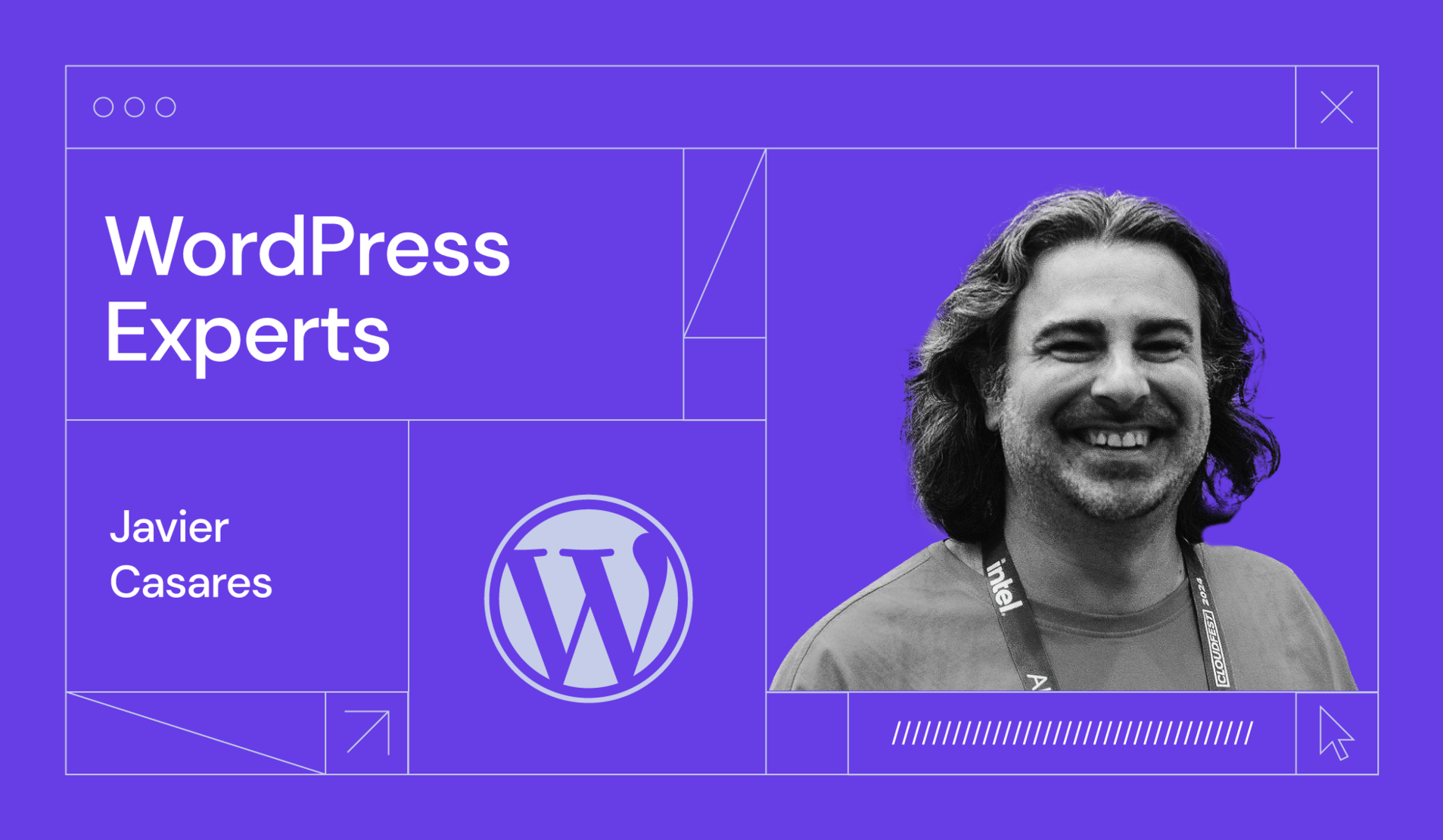
The Internet has been Javier Casares‘ playground since he first encountered it in 1994. He created his first website in 1997, has been using WordPress since its early days in the dawn of the 2000s, and has been contributing to the WordPress community since 2012. The Internet has always been fascinating for him, both personally and professionally.
Javier currently serves as the Hosting Team Representative at WordPress open-source project. Together with his team, they’re on a mission to make WordPress work flawlessly across different hosting providers through industry collaboration and user education.
And if you’ve ever attended any of the WordCamps in Spain or even other flagship events worldwide, you’ll likely remember him as the cheerful guy who warmly welcomes everyone to the community and is always willing to share his wealth of WordPress knowledge!
Read on to learn more about how Javier channels his enthusiasm for the Internet and his aspiration to make it a better place.
The Internet citizen
Javier describes himself as a netizen, or internet citizen – a term that aptly encapsulates him. Everything he does is related to the Internet, whether it’s working with website performance optimization, managing systems, or having fun on podcasts and creating Spotify playlists.
“Being able to connect with practically anyone, even machines, from anywhere on the planet is fascinating,” he says.
Javier believed that if he was going to work on the Internet, he needed to know how the Internet works. This philosophy led him to learn technical resources like the now-obsolete RFC 2616 protocol, which detailed how HTTP works. He found this knowledge invaluable in understanding how SEO works, such as how search engines crawl websites.
His career initially focused on programming and systems. By 2018, he had pivoted more towards systems administration, mainly focusing on WordPress.
One of Javier’s enduring projects is Durcal.net, an evolution of his very first website. Initially created during a summer vacation in 1997 when he learned HTML 3.2, the site is a comprehensive guide to the city of Durcal, Spain. While confined to Durcal during the COVID-19 pandemic, Javier decided to revive the site using WordPress.
“I don’t have much time to maintain it since it’s a free site without ads, but I update the parts that can be useful for visiting tourists who want to explore the surrounding areas,” he explains.
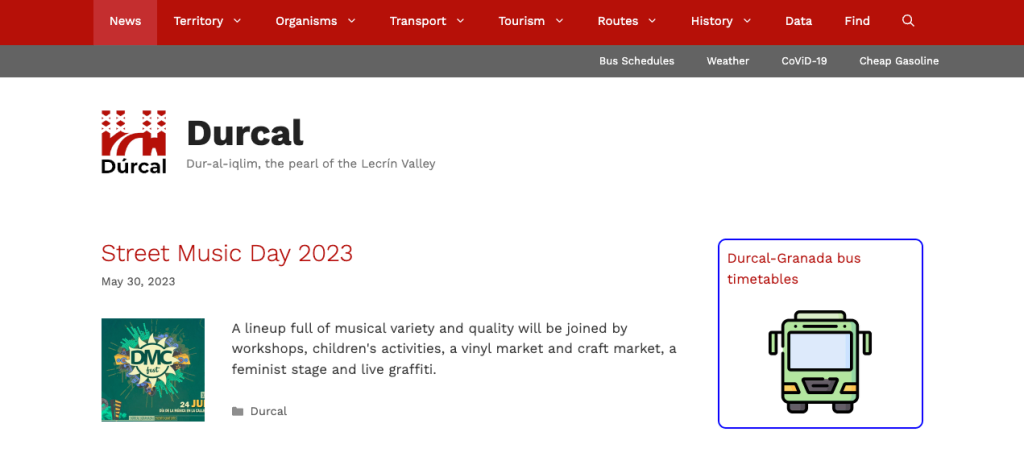
Javier’s love for music is another testament to his internet-centric lifestyle. He has a massive Spotify playlist named Music for Developers. “I can’t work without music. I feel strange without it. I could even say that it helps me concentrate,” he says.
The playlist spans over 100 hours and features mainly dance music in various languages. “I suppose this is what remains after working at various radio stations. I guess, from there, my interest in podcasts also comes,” Javier continues.
When asked what he would do if there were no such thing as the Internet, Javier admits, “I don’t know, really! I think I would do something related to teaching, which is exhausting but very satisfying.” It’s not hard to imagine him in that role, as he often speaks at many WordPress events, sharing his know-how with keen learners.
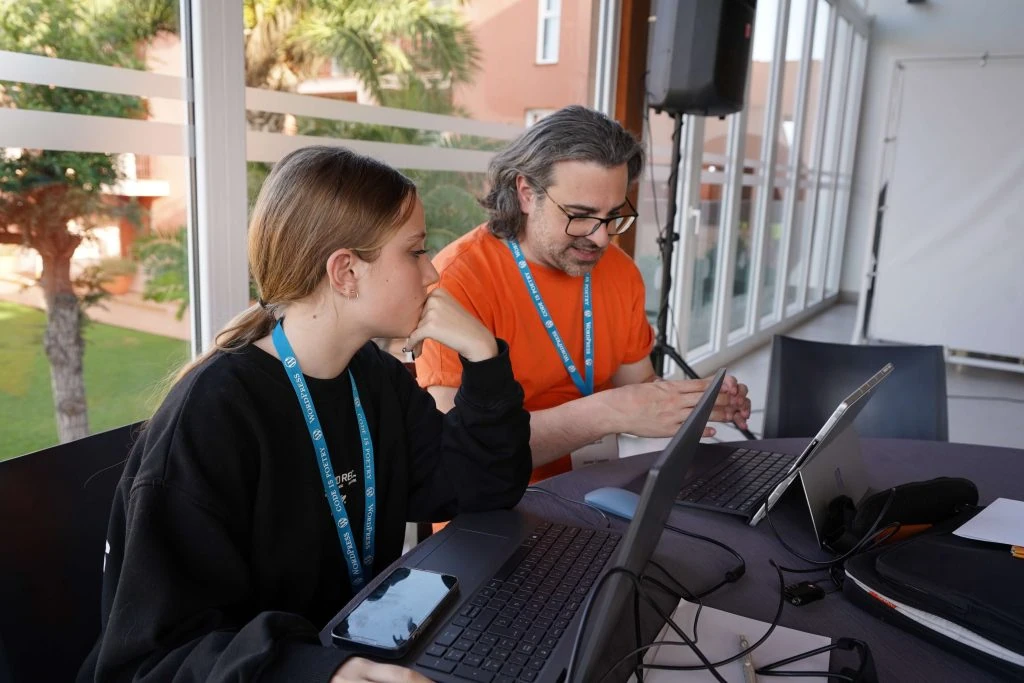
Balancing his multiple projects, including WordPress SysAdmin, the WordPress Vulnerability Database API and its plugin, WordPress Podcast, and running his company ROBOTSTXT, Javier relies heavily on time management.
“How do I manage my time? The truth is, I wonder about that too,” he says, noting that it’s normal to get overwhelmed sometimes. Thankfully, the Open-source project management software Kanboard helps Javier organize his daily tasks in Kanban mode, utilizing time blocking in his schedule.
Getting into WordPress
Javier’s adventure with web development began with creating websites in HTML. Over time, he evolved to using PHP, recognizing its powerful capabilities. This led him to explore various content management systems.
When he worked on a project called Googlemania, Javier had his own simple CMS. As the project grew, he realized he needed something more robust.
After testing all the free CMSs available, he found WordPress to be the best option for his needs. When he first experimented with it, WordPress was around version 1.2. By the time he fully adopted it, WordPress had reached version 1.5.1.
Since then, almost all his projects have been built with WordPress.
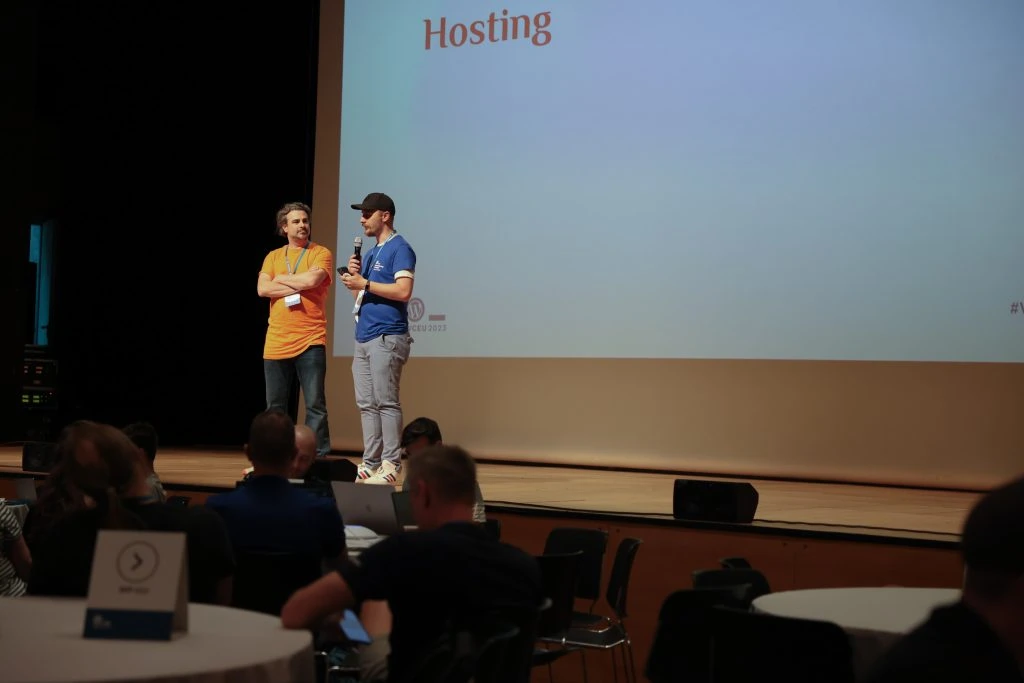
Javier’s contributions to the WordPress project have also evolved through different phases.
Starting as a regular user, his involvement deepened when he began attending WordCamps as a speaker, focusing on topics like SEO and web performance optimization. Eventually, he started co-leading WordPress events in Barcelona, including Meetups and WordCamps.
A significant turning point came in 2018 at WordCamp Sevilla and Granada, where he met Kira Schroder.
During the organizers’ dinner, while discussing community activities, Javier mentioned his interest in systems. Kira then introduced him to the Hosting team, of which Javier hadn’t been aware before. For him, WordPress had primarily been about the big contributor teams like Community, Plugins, and Themes. He hadn’t noticed the smaller, specialized teams like Hosting.
After a few months of getting to know and understanding the Hosting team’s dynamics, Javier began actively participating and sharing his opinions. His dedication didn’t go unnoticed, and within a few months, someone proposed him as a Team Rep. The rest is history.
Thriving in the Hosting team
Javier found the work of the Hosting team interesting because it aligned perfectly with his professional profile.
“It’s something I enjoy and do every day,” Javier explains. He expresses how gratifying it is to apply his professional knowledge for the good of the community. “Additionally, the ability to detect issues that arise or test future versions, and see what works and what fails on WordPress before it reaches everyone, is important work.”
Javier’s first contribution to the Hosting Team was documenting and reorganizing the Hosting Handbook.
Back then, not much documentation was available, and some were outdated. “Now, every time a new version of WordPress is released, we publish a post about PHP compatibility and other necessary elements, such as caches and databases. I believe this educational aspect is essential,” Javier adds.
Over time, it became clear that organizing information is one of Javier’s strengths.
At one point, Milana Cap from the Documentation team approached him with an exciting proposal: for the Hosting team to lead the creation of the Advanced Administration Handbook. Javier accepted the challenge, and now, the two teams are managing this documentation collaboratively.
Lately, Javier has been programming a part of the hosting compatibility tool PHPUnit Test Runner called Project Bedrock. This project proposes creating a WordPress hosting directory. “Currently, my focus is on this project,” he shares.
In addition to all those documentation tasks, Javier still has some time to help with handbook localization efforts and support the Spanish WordPress community.
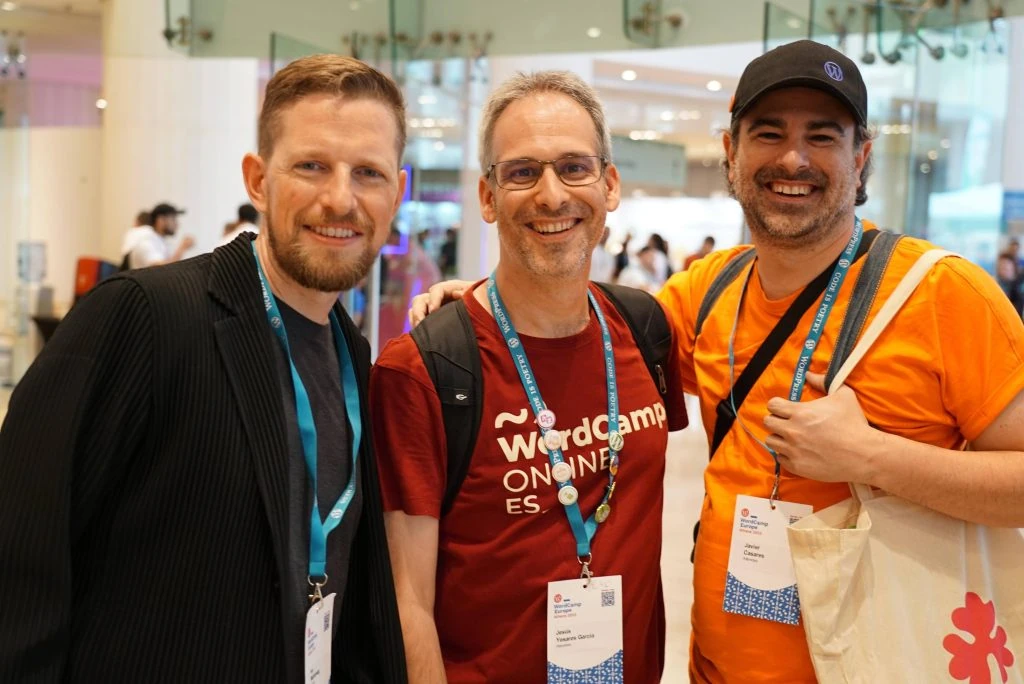
As a team rep, Javier has numerous responsibilities, including organizing meetings, publishing summaries, leading the Hosting table at Contributor Days, and handling various administrative tasks. Specifically for the Hosting Team, he engages in programming and liaises with hosting providers.
That might sound like a lot of work, but Javier reveals that his time in the Hosting Team has been incredibly enriching. It is within this team that he has truly grown professionally, expanded his network, and made many friends.
Has he encountered any challenges while contributing to the Hosting Team? Definitely. But he believes these are the classic challenges that contributors to any team encounter – figuring out who is who, what the projects are, and how to start contributing.
“I observed the Hosting team’s Slack channel and tried to understand the interactions. Once I got a grasp of things, I began to speak up and share my opinions,” he says.
He recommends finding someone who understands how the community works to help navigate the initial confusion. “A year ago, when the Mentorship Program started being discussed, I had no doubt about diving right in. I knew my knowledge of how the community operates could help someone,” Javier says. “My mentee is now a mentor. Now, he is the one explaining to others how the community works. I guess I’ve done something right,” he concludes.
Growing together with the Spanish WordPress community
Javier is a part of the Spanish WordPress community, which is known as one of the most active WordPress communities in the world.
“Spain is a rare bird in the world of WordPress. I believe the secret lies in the community, in the events, in maximizing the potential of local meetups, and ensuring that all major cities had people willing to lead WordCamp year after year,” he says.
Initially, the Spanish WordPress community was very focused on events, and only a few people participated in the open-source project. Only a few long-time contributors were involved.
After Javier started participating globally in the Hosting Team, he shared his experiences through events and podcasts. Seeing fellow Spaniards making a mark in the global WordPress project encouraged others to get more involved outside the local community. Slowly but surely, they started exploring beyond their comfort zones.
Over the past three years, many leaders of local Spanish teams have challenged themselves to use English and started taking on responsibilities. Many of them are now Team Reps in various contributor teams. Many Spaniards working in global companies have also gained more visibility and made the most of their involvement globally.
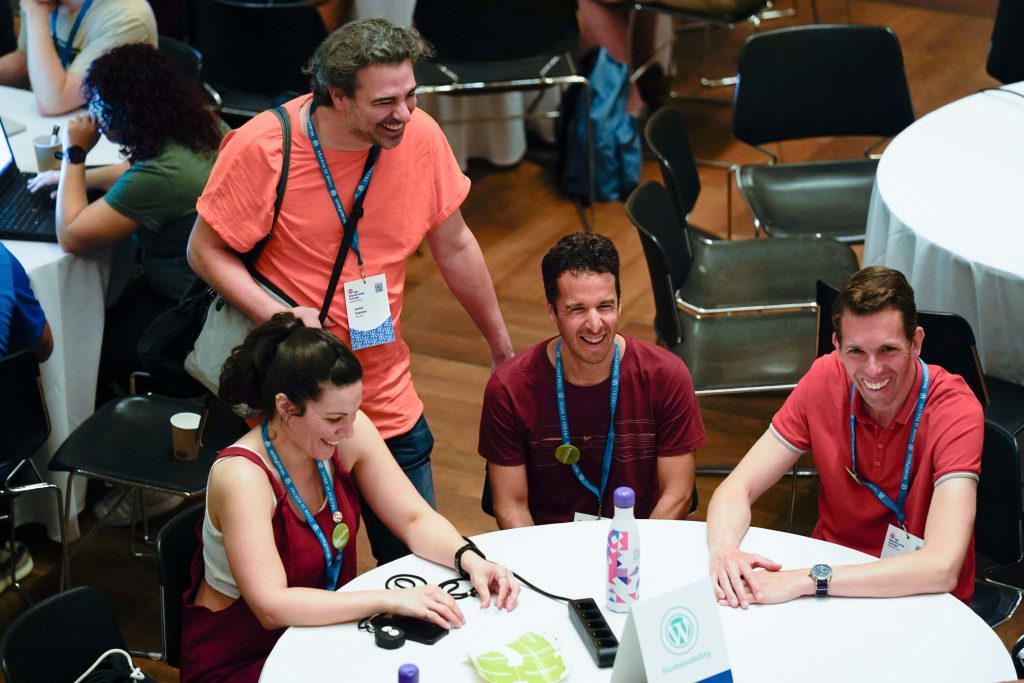
One of the turning points for the Spanish community was during the reorganization of the Plugins Team, where Paco Marchante was involved. When Mika Epstein decided to leave, Álvaro Gómez asked Javier if he was interested in leading the Plugins Team, to which he immediately replied: “No way!”
He admits the idea was fascinating, but he knew he would have to leave the Hosting team.
“So, I told Álvaro that I know who can handle this,” Javier continues. A few days later, Paco, David Perez, and later Fran Torres, now the leaders of the Plugins Team, were contributing to clearing the backlog and developing new tools.
“Spain has excellent WordPress professionals, and once they get over the hesitation of ‘I don’t speak English very well,’ they are very competent professionals to represent the community,” Javier explains.
Above and beyond contribution
It’s easy to be in awe of how Javier is almost always on top of everything WordPress.
“I believe running the WordPress Podcast, which I have been doing weekly without fail for two or three years now, helps a lot with this. It gives me a global vision of everything that happens in the WordPress community. I might not know something precisely, but I know who, when, or where someone talked about it,” he explains.
When asked about his most memorable moments or achievements as part of the WordPress community, Javier highlights attending all the WordCamps in Spain in 2018, giving a different talk at each of those events, and leading several WordCamps in his city, Barcelona. He also takes pride in being part of the effort to establish the Sustainability team and helping with the automation of documentation in GitHub for various teams.
However, for Javier, his most decisive moments have been with the Hosting Team. The two most recent highlights are leading the testing project at the Cloudfest 2024 Hackathon and taking the current steps toward creating the hosting directory.
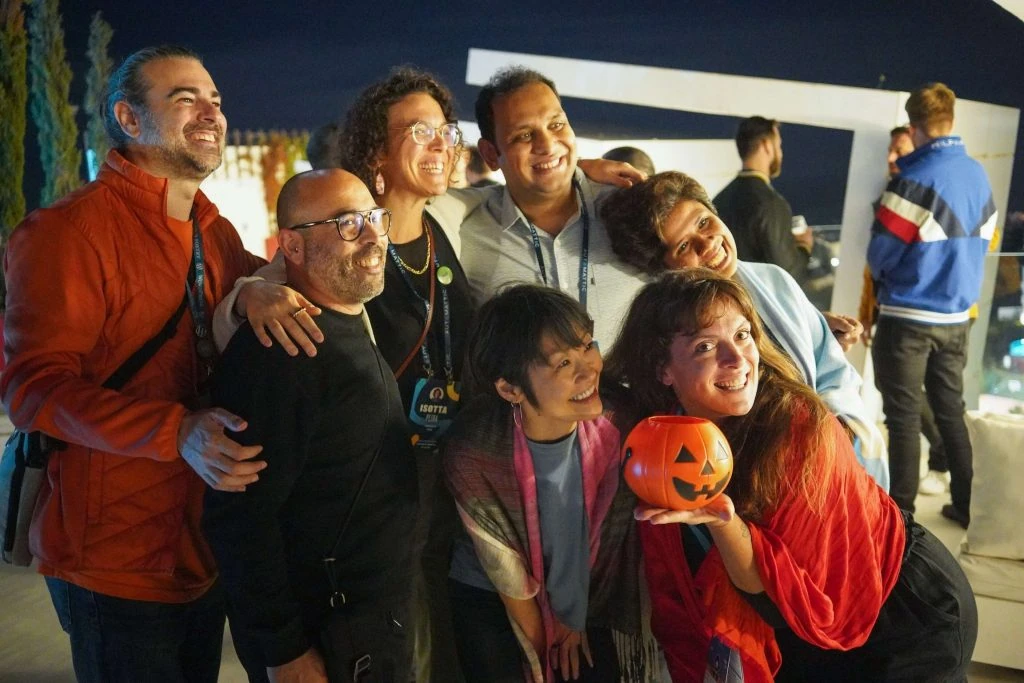
For those who want to start contributing to the Hosting team, Javier has two pieces of advice. The first one is to do as he did back in the day: join the Hosting Slack channel and learn what’s happening there. “There are weekly meetings and the Handbook – they’re more than enough.”
The second piece of advice is something that happens pretty regularly for Javier. “Send me a DM and say that you want to contribute to WordPress, or specifically to the Hosting team. When someone asks me, I usually ask back a few questions, like what they do and what attracts them the most. From there, I can suggest something simple to start contributing to, no matter the team. And if I don’t know, I will connect them to someone else.”
Javier asserts that there are more than 20 different teams in the WordPress community. Most of them are technical teams, but there are also teams handling other aspects, such as Polyglots, Photos, and Sustainability. “If someone isn’t participating, it’s simply because they choose not to!” he quips.


